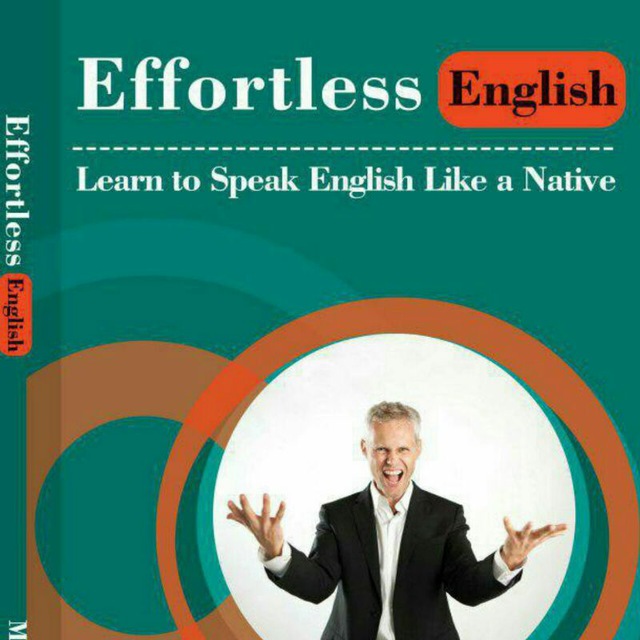
Effortless English
Join all of the following NOW👇👇
⭕️ @chat_that
⭕️ @Book_wordnik
⭕️ @IELTS_Council
⭕️ @BBC_6_Minute
⭕️ @IELTS_Super_Pack_Groupa
⭕️ Instagram.com/IELTS_Wordnik
http://youtube.com/@ZabanTube
👆👌👌👌👌
Recent Posts
@Mehdi
#IELTS Reading Tip: To improve your reading speed and comprehension, divide lengthy passages into smaller, more manageable chunks. Instead of meticulously reading every word, prioritize understanding the primary point of each paragraph. This efficient approach will significantly reduce your reading time.
@pdf
@free
@ebooks
@free
@ebooks
Using #idioms in the #IELTS #speaking test can significantly improve your score because it makes you sound more like a native English speaker!
Explore this new this book that helps you learn and practice the most common idioms.
@Free
@pdf
@books
@Ebooks
Explore this new this book that helps you learn and practice the most common idioms.
@Free
@books
@Ebooks
Some popular ways people say "Hi" in American English:
Hey – Very casual and friendly.
Hello – A bit more formal but still common.
What's up? – A casual way to ask how someone is doing.
Howdy – Friendly and a bit Southern in style.
Hiya – Light and upbeat, often used informally.
How's it going? – Another friendly way to ask how someone is.
Yo – Very informal and often used among friends.
Sup? – A shortened version of "What's up?"
Good to see you – Often used when greeting someone you haven't seen in a while.
@pdf
@free
@ebooks
Hey – Very casual and friendly.
Hello – A bit more formal but still common.
What's up? – A casual way to ask how someone is doing.
Howdy – Friendly and a bit Southern in style.
Hiya – Light and upbeat, often used informally.
How's it going? – Another friendly way to ask how someone is.
Yo – Very informal and often used among friends.
Sup? – A shortened version of "What's up?"
Good to see you – Often used when greeting someone you haven't seen in a while.
@free
@ebooks
Sentence expansion practice
@Ebooks
@Free
@pdf
@Ebooks
@Free
#IELTS_Tips: When tackling Reading sections, divide lengthy passages into smaller parts.
Concentrate on understanding the main idea of each paragraph rather than processing every detail. This approach will save you a significant amount of time.
#reading
👇😍
@Writing
@Free
@Pdf
Concentrate on understanding the main idea of each paragraph rather than processing every detail. This approach will save you a significant amount of time.
#reading
👇😍
@Writing
@Free
LEARN TO LOVE TO READ
Cultivating a true love for #reading is like gaining a superpower. We live in an age where all the world's knowledge, every book and piece of wisdom ever recorded, is instantly accessible. The resources for learning are plentiful; it's the drive to learn that’s in short supply.
@Writing
@Free
@Pdf
Cultivating a true love for #reading is like gaining a superpower. We live in an age where all the world's knowledge, every book and piece of wisdom ever recorded, is instantly accessible. The resources for learning are plentiful; it's the drive to learn that’s in short supply.
@Writing
@Free
Task Achievement vs. Task Response:
♨️Task 1: Focuses on Task Achievement – how well you summarize and report the key features of the given data, following the instructions.
♨️Task 2: Focuses on Task Response – how well you respond to the given question or topic.
A common mistake is treating Task 1 like Task 2, where candidates list all available information instead of summarizing and comparing key points, as required.
@Free
@Free
@Free
@Free
⭐️
♨️Task 1: Focuses on Task Achievement – how well you summarize and report the key features of the given data, following the instructions.
♨️Task 2: Focuses on Task Response – how well you respond to the given question or topic.
A common mistake is treating Task 1 like Task 2, where candidates list all available information instead of summarizing and comparing key points, as required.
@Free
@Free
@Free
@Free
⭐️
Vocabulary for Task 1 Essays
☝️☝️☝️☝️☝️☝️
☝️☝️☝️☝️☝️☝️
از عجایب تلگرام
👇
@Wonder
👇
@Wonder
EFFORTLESS ENGLISH DAY OF THE DEAD|LEARN ENGLISH EVERYDAY|LESSON 1





